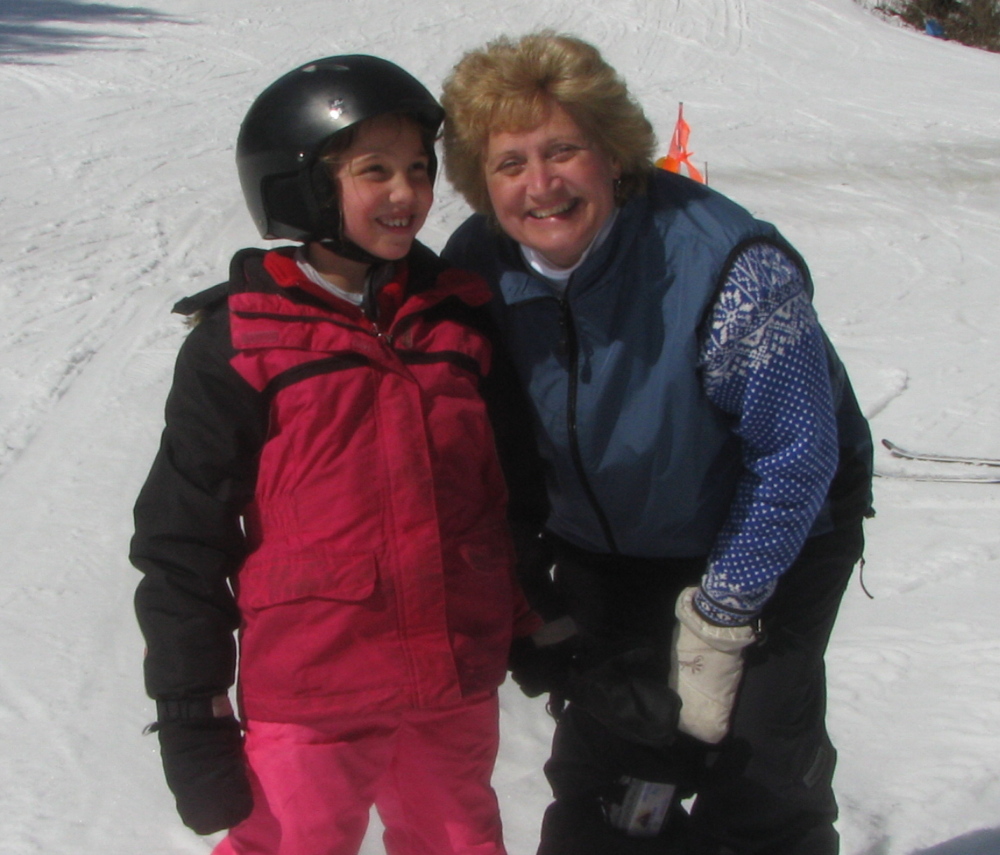Cindy Dubois, 49, has been a skier for more than 30 years. But these days she spends all of her time on the slopes helping others learn to ski.
For the past 11 years, Dubois has been helping Central Maine Adaptive Sports, an Auburn-based nonprofit, to teach skiing to those with disabilities at Lost Valley. She spends up to 200 hours a winter volunteering. This winter Dubois will be sidelined because of a broken ankle, so she’s trying to recruit new coaches.
How much of your time does your volunteer work with Central Maine Adaptive Sports take up?
Oh goodness. I’m over there all day Saturday and Sunday, and usually Wednesday, Thursday and Friday night. Probably 25 hours a week for 10 weeks in the winter. I start in January and it goes through March. I’ve been involved with the disability population pretty much all my life. I enjoy teaching those with disabilities how to ski. I’m a skier myself since the age of 15. I work with this population for my job, and hear students who are not getting out in the winter, who are sitting at home.
How many students do you teach to ski?
Probably 20 to 25, and it’s a mixture of experienced or new students. It’s a lot of repetitive work. I might do the same thing for two weeks in a row. There are different disabilities. One thing I do with one student might not work with a different student. It depends on the degree of the disability. A student could have mild autism or some a really high autism.
What issues are you dealing with when a student has high autism?
I would be more likely to work with them consistently for two to three years, going over skills with a lot of repetition before they actually get the task. They lose it after 10 weeks because they’re not doing it all year, and then we’d have to start again the next year.
Is that frustrating?
No, not at all. I do what I can do, and I’m happy. I have parents who say they never thought their child would get up on top of the mountain, or that their child will never get on a lift because they’re scared of heights. I have a student who put her hands in the air when she did because she is not able to talk. A lot of times the students think the top of the mountain is steep when it’s not. They’re full of anxiety and they’re nervous.
What’s the most rewarding moment for you in this volunteer work?
Every day when a student comes down the hill. Just seeing them clapping that they made it. Some say, “More, more, more.” Seeing their smiling faces and the parents waving to them, it is just amazing to them that their child can do it.
Yes, they have adaptive equipment but they are going up and down the mountain. I love it, their faces and expressions.
When do you get to ski?
Not very much. I do miss it. I don’t know what it is, but I just feel when a student gets up and down the hill and they’re ready to go again. It’s just amazing.
Now with your injury you’re out the entire winter and working on finding other coaches. Why does that fall on you?
I’m the president of the program’s board of directors and have been for five or six years. I’ve also been involved with Special Olympics for 20 years. I’ll still be involved, I just won’t be able to ski. Central Maine Adaptive has had about 30 volunteers. We now have 86 students. We used to have 120 students. So we have a waiting list.
Did your own children grow up skiing at Lost Valley?
Yes, they did. My youngest daughter teaches skiing with me now. I grew up skiing at Sugarloaf. Sometimes I miss the skiing, and wish I could take a day off. But then I think, if I took a day off when I have five clients, then those five clients can’t ski that day. I look at it that way.
Send questions/comments to the editors.




Success. Please wait for the page to reload. If the page does not reload within 5 seconds, please refresh the page.
Enter your email and password to access comments.
Hi, to comment on stories you must . This profile is in addition to your subscription and website login.
Already have a commenting profile? .
Invalid username/password.
Please check your email to confirm and complete your registration.
Only subscribers are eligible to post comments. Please subscribe or login first for digital access. Here’s why.
Use the form below to reset your password. When you've submitted your account email, we will send an email with a reset code.